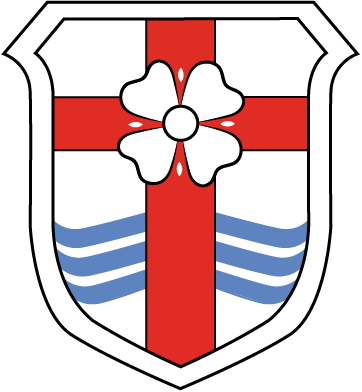01438 352863 I admin@clitherow.herts.sch.uk
Our Learning / RE
Please click below to view our RE Policy
Religious Education Policy
We aim for all pupils to be religiously literate, know their way around Scripture and the traditions of the Catholic Church and to be able to consider how this impacts on their everyday life.
RE is at our core and we aim for our children to have the knowledge, understanding and skills – appropriate to their age and capacity –to reflect spiritually, and think ethically and theologically, and to be aware of the demands of religious commitment in everyday life.
Our curriculum and the Catholic life of our school is underpinned by our school values based on the Kingdom of God.
It is an opportunity to take Christ’s teaching into the heart of our faith and our school. Jesus taught constantly about “the kingdom of God”. This concept was at the centre of his teaching and life –we want to have the same at St. Margaret Clitherow School.
Our mission is to do all we can to bring signs of God’s mercy, compassion and justice into the world. This is the mission Jesus has entrusted us to do. If we have faith in Him, we will witness how he can help us to help others.
Religious Education is at the centre of everything we do asa Catholic school and permeates through every aspect of the curriculum and school life. We ensure that a minimum of 10% of Curriculum time is allocated for RE teaching across all key stages. The requirements of the RE curriculum are met through the scheme ‘The Way the Truth and The Life’ which in turn meets the requirements of theReligious Education Curriculum Directory set out by the Bishop’s Conference of England Wales.
We aim for all children to meet a standard that equals or is better than those of Literacy at all key stages and Foundation stage. Children are assessed not only on the content of their recorded work but on their individual, group and oral work through each topic. This enables both class teachers and the subject leader to monitor coverage and identify progress made throughout the pupils’ time at school.
A range of teaching strategies and learning methodologies are employed depending on the needs and abilities of the children and the nature of the activities being undertaken.
Approaches will include whole class teaching, group activities and individual work. Children will have opportunities to work individually as well as co-operatively and collaboratively, developing their own knowledge and expertise as well as sharing their experiences with others.
All work will involve thought provoking reflection and discussion, encouraging the children to develop their moral and spiritual consciences. The children are encouraged to ask questions and to listen carefully to the opinions of others.
In the EYFS children begin to explore a range of ways that different faiths celebrate at key points in the year. From Year 1 onwards, pupils explore a unit each year studying Judaism (linking to Jesus’ life as aJew) and a further unit studying Islam. As the children become older, they are also increasingly exposed to the concept that Christianity is wider thanCatholicism; that all Christians are not Catholic; and that not all people live their lives according to a faith. RE is not taught in isolation, but as a subject that underpins our daily actions. A rhythm of prayer throughout the school day and the development of a rich tapestry of Catholic Life underpins the RE curriculum at every stage.
Overview of RE themes
All Catholic schools are required to teach about other religions as part of theReligious Education curriculum. This is a feature of Catholic RE in all stages of a child's development, from the beginning of Primary School. It prepares the pupils in our Catholic schools for life in modern Britain, giving them an understanding of the beliefs of others. This in turn will improve social cohesion and contribute to the common good by increasing mutual respect between those of different religions.
Children are not only ‘taught’ their faith, it is ‘caught’ from home and from school. As they grow, the children are encouraged to put their faith into practice in their own lives.
Encourage your child to talk about what they have been learning in RE. Help them to recognise that some of the “big” questions may be difficult to answer.
Support homework tasks and give your child opportunities to talk about the role faith has in the decisions you make as a family.
Pray together, help your child to learn the important prayers of the Church.
Share the Wednesday Word with your child each week. Consider how the scripture links to the school values.
By working together for the children; parents and teachers make this school a place which we can truly say: “Jesus lives in us”
Please scroll through the gallery below for a flavour of RE learning at our school
